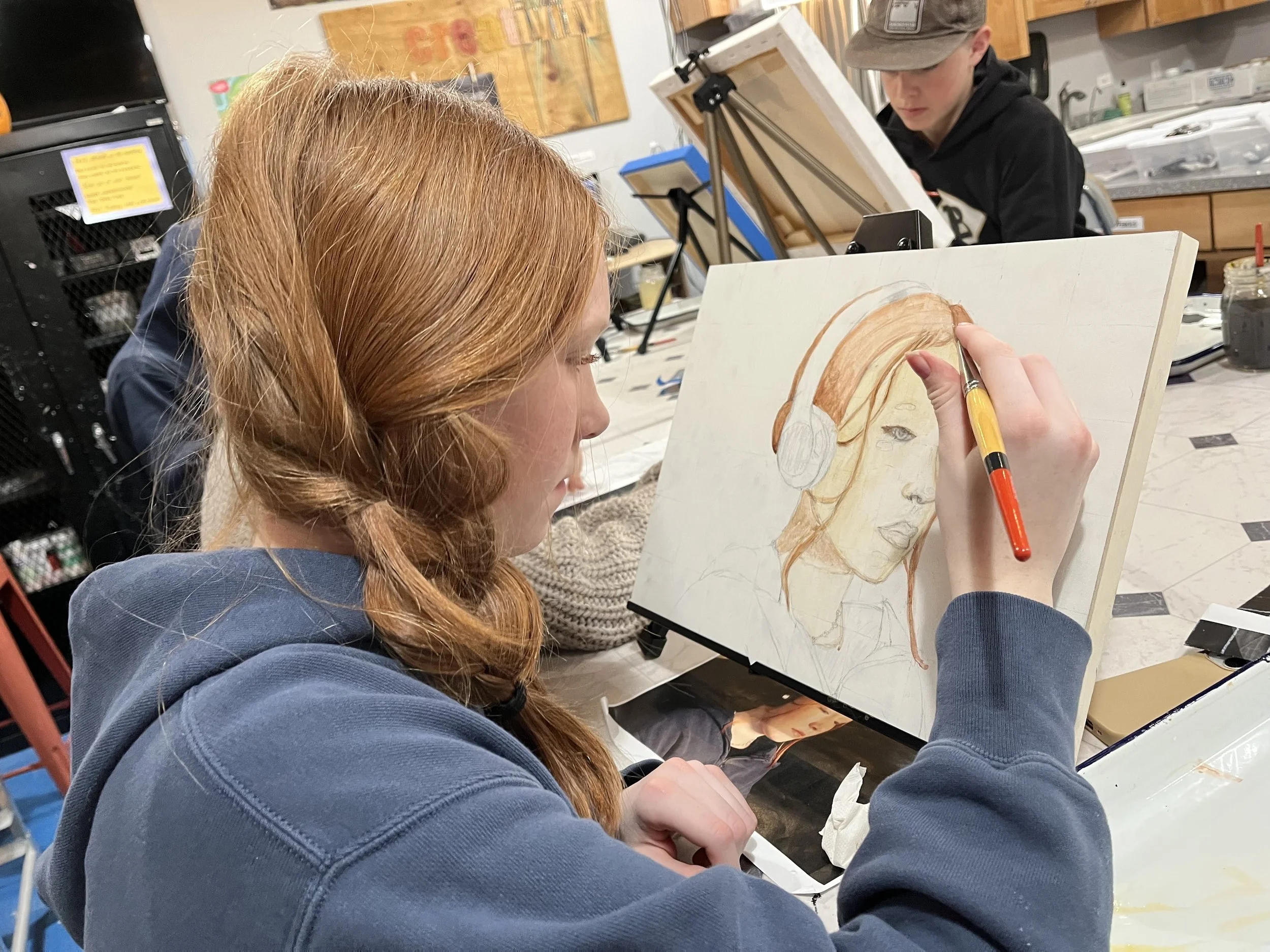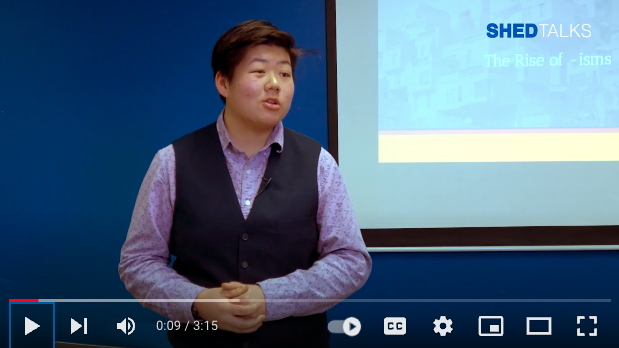AssessmentS
At Watershed School, we believe that assessment is a critical part of the learning process, rather than a way to judge success or failure.
SHEDTalks
Several times a year students prepare and deliver SHEDTalks to an audience of students, educators, and parents. These presentations highlight academic work that the student is proud of, work they connect with, work that has made a difference in their lives or the lives of others.
Student Portfolios
At Watershed we support students in maintaining professional portfolios to capture student learning and growth in each course. Students create, develop, and refine digital portfolios in each of their courses, using them to capture the process behind their work, reflect on their learning and showcase the work that they are most proud of. Strong portfolio pages often include links to comments on how to revise an initial effort; images of their process and the final product; links to key assignments and projects; time lapses and image carousels that help to document the process; as well as written reflections where students work to articulate their learning, successes, challenges, failures, insights and inspirations. Finally, students use their portfolios in a series of presentations where they work to evidence the great work that they have produced and their ability to meet the character strengths, skills and abilities set forth in Watershed's Portrait of Graduate.
Watershed’s Assessments are designed to:
Help students evaluate their own progress so that they may celebrate their successes and identify the areas that still need work.
Help educators assess the progress and needs of individual students in order to tailor instruction and experiences to meet those needs, as well as to evaluate the effectiveness of their curricula and teaching techniques.
Determine whether students have mastered specific skills and knowledge.
Document the learning that takes place at Watershed School for prospective colleges, for students and parents, and for other professionals in the field of education interested in improving the quality of education in their schools.
Proficiency Levels
Performance and progress are assessed using the concept of proficiency towards clearly stated learning targets in each course. The proficiency levels are Beginning, Developing (low and high), and Accomplished (low and high). Assessment occurs on an ongoing basis through project evaluations, public presentations of learning, and other evaluations of students’ learning and community involvement. These include self-reflections, educator assessments, and regular one-on-one meetings with advisors.
Progress Reporting
Parents can expect regular information on their child’s progress. At mid-semester, we have student/educator/family conferences to discuss student learning and growth. At the end of each semester, educators share a narrative report as well as proficiency level. In addition, we ask students to engage in reflection on their own progress, and these are shared with parents. At the end of the semester, students present their work during FAIR (Festival of the Arts and Intellectual Reflection) or RoLs (Reflections on Learning).
High School Transcript GPA
At the high school level, we convert proficiency levels to a GPA to aid credit transfer and acceptance to higher education institutions that typically rely on GPAs for admission and scholarship qualifications. We do not rank students nor do we report a GPA as a regular part of student progress reports. Within our community, our conversations are about student learning and growth, which is too nuanced for any GPA to capture.







